Guest post by Janet Weil
A favorite Jack Kornfield book title of mine is “After the Ecstasy, the Laundry” — modern stories and ancient tales of dealing with life’s day-to-day challenges after the ecstasy of spiritual epiphanies.
That phrase frequently ran through my mind as I faced a long to-do list after my mother, whom I had been caring for, died at home.
After any death, a set of must-do tasks rises up to confront the surviving loved ones. We learn about our dear departed in new ways as we clear their medicine cabinets, open their jewelry boxes, reach into their closets, handle their documents, and empty their wallets and purses. When we feel most exhausted by death, we must also find the strength to deal with practical details.
My mother died at home, as she had wished, with our extended family giving comfort and care in her last weeks. Most of us gathered at her apartment the day after she died. I had the idea that my two sisters-in-law, my niece and I would go through her jewelry and take a few things to remember her by.
Though one sister-in-law said sadly, “It’s too soon for me,” we circled around the dining table with her lovely things.
They seemed to call out to us: a sparkly, casual red bracelet for my youngest sister-in-law, two long necklaces for another niece in Kansas, some earrings for myself, a pink heart for a niece, small things set aside for my mother’s little great-granddaughters. The range of my mother’s life was suggested in these small but significant objects: her faith, her travels, her favorite colors. Reminiscences came naturally. We selected a heart brooch for a paid caregiver who had been with her when she died.
For the difficult job of clearing her apartment where my mother had lived alone for several years, I told myself that I could do it “in pieces”. The first place I cleared and cleaned was her bathroom, with its sad associations of her last illness.
The second big “piece” was emptying her closet. A huge lump in my throat swelled as I found the dress she had worn at my wedding – 35 years earlier!
My mother had more purses than I had known, all neatly paired with her jackets. I cried a bit as I tenderly handled her clothes, so evocative of her body and personality. Then a more dry-eyed determination took over. I threw away her underpants; put almost all her other clothes in bags for donation; and saved a few purses, jackets and blouses for myself and my sisters-in-law. Handing over the bags at Goodwill, I thought: “May these go to women who really need them.”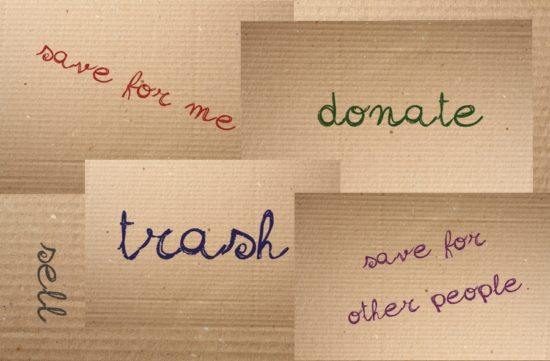
The final big push was clearing her kitchen and living-dining area. I leaned on men in my family to take nonperishable food to a charity, deal with papers, and haul every last piece of furniture out of her apartment.
My brother and I turned in the keys at the apartment complex office, a brief secular ritual of farewell.
My mother was well-organized and clear in her last wishes, which made the days after her death easier. I only took on “pieces” which I could finish in a few hours and I never rushed myself — and fortunately, no one and no outside circumstance rushed me. I know many people are not so blessed.
Early in the process, my red-bracelet-wearing sister-in-law said excitedly, “There’s a real treasure trove in her cedar chest!”
As we lifted out old photo albums and framed photos, we came across letters from my grandfather when he was stationed in Europe, fighting the Nazis.
These were entrusted to me to sort through, organize chronologically, and scan into digital files, a project I look forward to. Grandpa’s letters are a timely gift from the past as we face the biggest upswing in neo-Nazi rhetoric and violent demonstrations since the 1930s.
My mother’s death was one of the most painful experiences of my life, a profound encounter with mortality – hers and mine. Though the cleaning and clearing process at first just seemed like more grim chores, this work helped me focus, show generosity to others, understand better the full scope of my mother’s life, and move outward from the first anguished tears to an engagement with my family history – and the world.
After the sobbing, the sorting. And then the sweeter remembering…
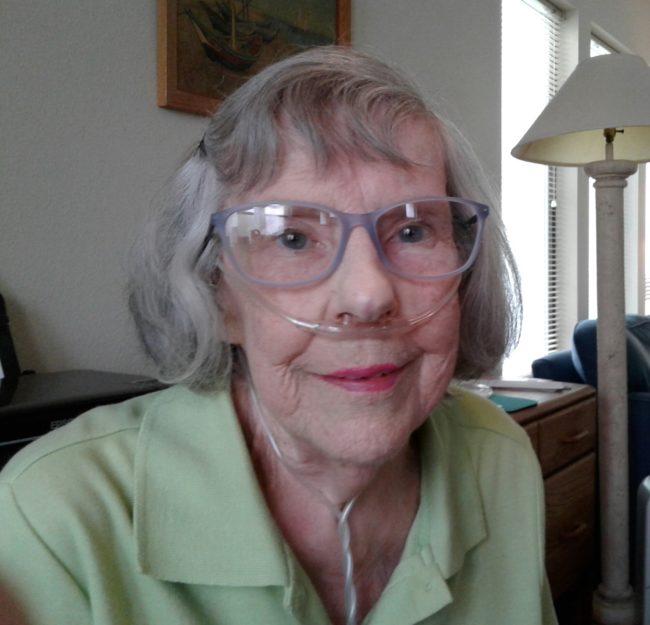
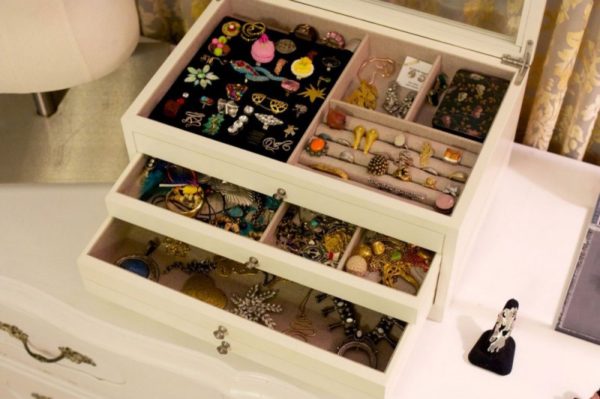

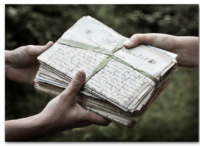
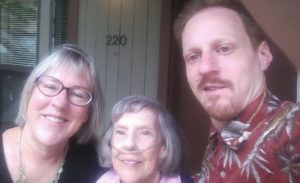 Janet Weil, former CODEPINK staffer, is now working on a book project, “Never Heard of Her” and enjoying life in “The Two P’s” – Portland, Oregon and Palm Springs, California. You can find her on twitter, where she posts frequently: @JanetRWeil.
Janet Weil, former CODEPINK staffer, is now working on a book project, “Never Heard of Her” and enjoying life in “The Two P’s” – Portland, Oregon and Palm Springs, California. You can find her on twitter, where she posts frequently: @JanetRWeil.